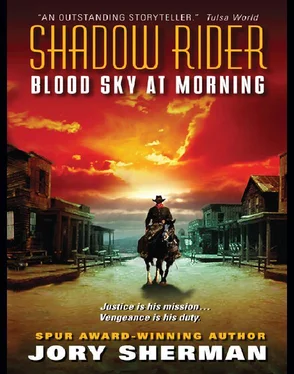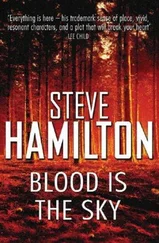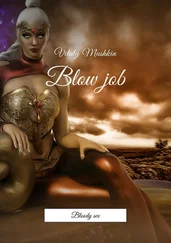“I see,” Chama said. “I wondered about that myself. Whoever took Ted knew where he would be.”
“Makes you wonder, doesn’t it?”
“Why do you say the name of Ferguson? Is that one of his wagons we are following?”
Zak told Chama about the two soldiers, the coach and Colleen O’Hara, his suspicion that Apaches had not killed the two soldiers. He also told him about the men he had seen at the way stations and what they had told him.
“You know,” Chama said, “that there are many whites who want the Chiricahua driven from their lands. They want to kill them or drive them far away.”
“I’m beginning to see all that, yes.”
“Many white people think that the only good Apache is a dead Apache.”
Zak had heard that talk many times before, applied to any red man. It galled him, as it galled Crook, and his blood boiled not only at the blind prejudice of the comment, but because he knew good men and bad of both races, the white and the red. And he knew that the color of a man’s skin did not reflect what was inside the man.
“Fear,” Zak said.
“What?”
“We fear whatever we don’t know, Jimmy. The white man fears the red man because he doesn’t know him. And he never will unless he shakes a red man’s hand and sits down inside his lodge and takes supper with his family. Same goes for the red man, too, of course.”
“I never heard a white man talk the way you do, Cody.”
“Maybe that’s because I’m a breed,” Zak said, “same as you.”
“You are of the mixed blood? Apache?”
“No. My mother was Lakota. Of the Ogallala tribe.”
Chama looked cockeyed at Zak. “Your Indian blood does not show much.”
“Does it matter? Blood is the same in all men. Mine is as red as yours and yours is as red as any white man’s.”
“That is not what the white men say.”
“No, that is true.”
Zak let the sadness of his words hang in the air between them. He could almost see the thoughts work through Chama’s mind, see it twitch ever so slightly in the muscles on his face. He knew it must have been hard on the young man, growing up with the Mescaleros and trying to find his father’s people among the Mexicans, and seeing how they, too, were treated by what the Indians called “the white man.” Skin. Like the coat of a horse or a longhorn cow, it came in all colors on a human. Yet men separated themselves according to their outward coloring and believed their blood was different, when in truth it was all the same.
“My uncle,” Zak said, “ Tashunka Watogala , Talking Horse, once told me that truth could not be put into words. He said that all we see with our eyes is not true. Only the things that cannot be seen are real and important.”
“Your uncle sounds like a wise man,” Chama said.
“He was a wise man. He taught me much. As did my mother, although I did not realize it at the time.”
“When we are young, we do not wish to learn from the old ones. But we learn anyway,” Chama said. “And when an old man dies, he takes all of his wisdom with him. If we do not listen to his words when he is alive, they are lost forever.”
Zak nodded, then shook off the thoughts that came rushing in, the words of Talking Horse, his mother, his own father. Good words. Not the truth, perhaps, but guideposts to the truths that lay hidden in plain sight.
“We’re not going to catch that wagon,” Zak said, “but I aim to put these supply stations out of business. You want to ride along?”
“But, of course. I am on the same trail as you, Cody.”
“There could be gunplay.”
Chama looked down at the pistol strapped to his waist.
“That is why I carry this pistol, Cody. If it is called upon, it will speak.”
Zak’s mouth curved in a lazy smile.
He turned his horse and set out toward the adobe he had seen in the distance. They followed the wagon tracks, then climbed another hill to survey the trail ahead. The adobe sat atop a rocky knoll, less than a mile distant. Horses milled in a pole corral some yards from the dwelling. Shimmering pools of watery light shone like fallen stars all around, dancing and disappearing with every turn of the head. The light was blinding and Zak did not look at any of the mirages directly, but scanned the adobe for movement, for any sign of life.
“See anything, Chama?”
“A white man will not bask in the sun like a lizard on such a day as this. If a man is there, he is inside, where the adobe is cool.”
“He could be watching us.”
“No. There is no shadow at the window.”
“You have the eyes of an eagle, Chama.”
Chama chuckled. “I think that you see as well as I, Cody.”
They rode down the slope of the hill, the cobbles clunking under their horses’ hooves, tumbling where they were dislodged, rolling a few inches before they halted and lay still once again.
They stayed to the flat, following the wagon ruts. These were crumbling and their edges lost to the wind, but still plainly visible, days old.
“We’d better split up, Chama,” Zak said. “Come at the adobe from the sides. I’ll ride up in front, call the man out. You can flank me if he opens up on me. Could be more than one man, too.”
“We will see,” Chama said.
Chama rode off then, on a tangent, making a wide circle so he would come up on another side of the adobe. Zak rode straight toward it, his senses honed to a keen sharpness, alert for any signs of life or belligerence.
He closed to within a hundred yards of the front door, giving Nox his head. He saw his ears stiffen and twist. The horse arched his back, lifted his head high. His neck stiffened.
What was Nox seeing that was not there? Zak wondered.
The horses in the corral spotted him and one of them whickered.
Fifty yards away. No movement at the window. The door was closed tight.
Forty yards and Nox seemed to stiffen all over, step more gingerly. Zak let his right hand fall to his holster. He put a thumb on the hammer of his pistol.
The breeze blew against his face. A small sudden gust whipped him, stung his cheeks with grit.
He thought he heard a metallic sound.
Then he heard the whump of a rifle booming from inside the adobe. Instinctively, Zak hunched forward, his body hiding behind Nox’s neck.
He heard the whoosh of a bullet, saw it kick up dust as it plowed a divot ten yards in front of them.
“You opened the ball, you sonofabitch,” Zak said to himself and drew his pistol as he dug spurs into Nox’s flanks and charged straight at the adobe.
He knew the rifle that the man used, from its deep-throated roar, muffled by the adobe walls. He knew just how long it would take for the man to fire that rifle again, and each second that passed seemed an eternity.
Life hung on such a slender thread, he thought, and he could feel that thread stretching, stretching, to the breaking point.
Chapter 13
The Big Fifty.
The sound of the Sharps was unmistakable, and Zak knew he had only seconds to get out of the line of fire before the shooter could reload the single shot rifle. He saw the puff of white smoke cloud the window ledge in the lower left-hand corner. He rode hard to come up in front of the house before the man inside could get off a second shot.
Nox’s muscles bunched up and he galloped as the energy in those muscles uncoiled. He stretched out his neck and laid his ears down, raced under the guidance of the bit in his teeth.
There was no second shot by the time Zak reached the front of the house. He took Nox around the corner to the other side, jumped out of the saddle and hunched down beneath a window on that side.
The scrape of a boot and Zak whirled, his pistol a part of him, swinging like a weather vane to come to bear on whoever was coming around the corner of the adobe.
Читать дальше












